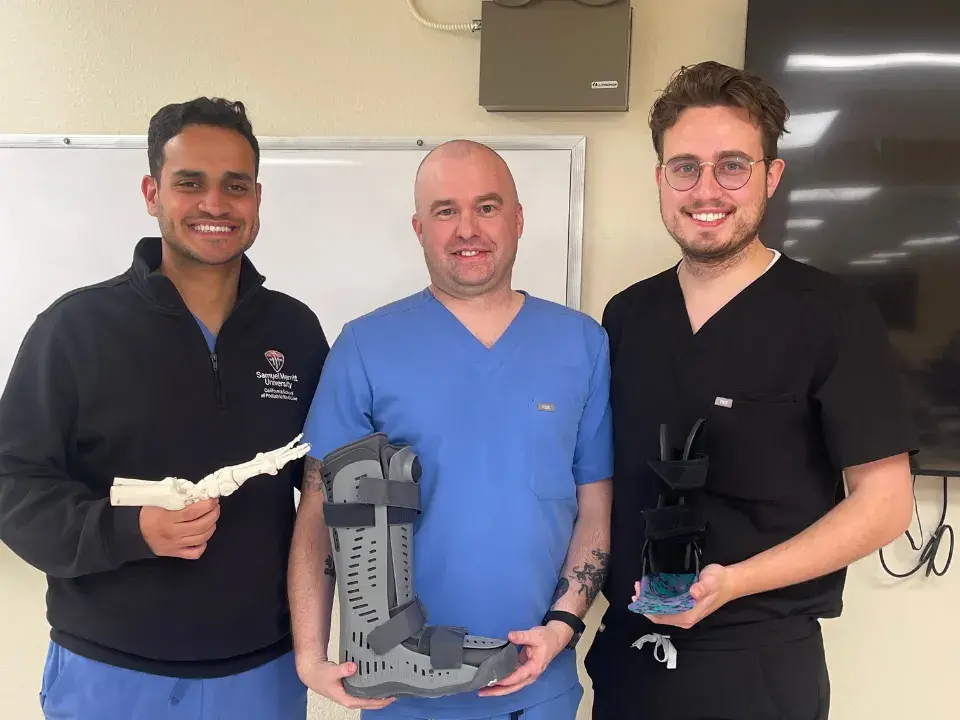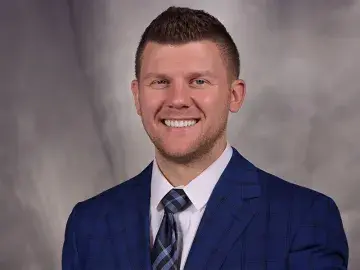New Health System Science Curriculum Receives Accolades

The Council on Podiatric Medical Education recognized SMU’s College of Podiatric Medicine (CPM) for developing an exemplary health system science curriculum during its most recent accreditation site visit. CPM is the first podiatric medical school with a curriculum stream dedicated to health system science.
First launched a year and a half ago, the health system science curriculum at CPM is based on a new, third pillar of medical education. Traditionally, clinical and preclinical topics, such as medicine, surgery, anatomy, and biochemistry, were the focus of podiatric medical education. CPM’s new health system science curriculum includes subjects such as health policy, inequity, structural determinants of health, medical ethics, teamwork, leadership, legal issues, advocacy, and healthcare finances.
“Teaching health system science focuses on the ‘softer skills’ of medical practice, skills that are important when practicing medicine even though they aren’t tested on board exams,” says Assistant Professor and Associate Dean for Educational Affairs Cherri Choate, who spearheaded the new curriculum with Adjunct Assistant Professor Chia-Ding Shih. “We give our students the foundational knowledge and vocabulary to maneuver in health systems, while teaching them to take a holistic approach to patient care.”
“As podiatrists, we don’t work in a silo,” Choate explains. “More and more, we’re all working together within the healthcare system. And the better we can be at that, the more productive, efficient, and effective we can be for our patients.”
Students will not only learn about health system science but also have the opportunities to discuss and see the integral role of health system science in the real world, explains Shih. Subjects are covered in classrooms, small-group discussions, literature reviews, simulation experiences, and clinical debriefing sessions.
“Medicine nowadays is becoming increasingly complex,” says Shih, who is also a faculty member at the Keck School of Medicine at the University of Southern California and chair of public health and preventative podiatric medicine at the American Podiatric Medical Association. “As healthcare providers, we need to understand how the health system works so we can advocate for our patients.”
Angel King, DPM ’25, has already applied the curriculum concepts to her clinical rotations, helping her engage with the whole patient rather than a specific issue they’re facing. “I’ve learned to be more empathetic and sensitive to a patient’s needs,” she says.
“I believe it’s not enough to just treat the disease; we need to treat the patient as a whole, including understanding their family situation, their societal position, and how it affects not only their physical but mental well-being,” King says. “With this practice of health system science and an inclusive approach to patient care, a healthcare professional can truly treat the patient.”


